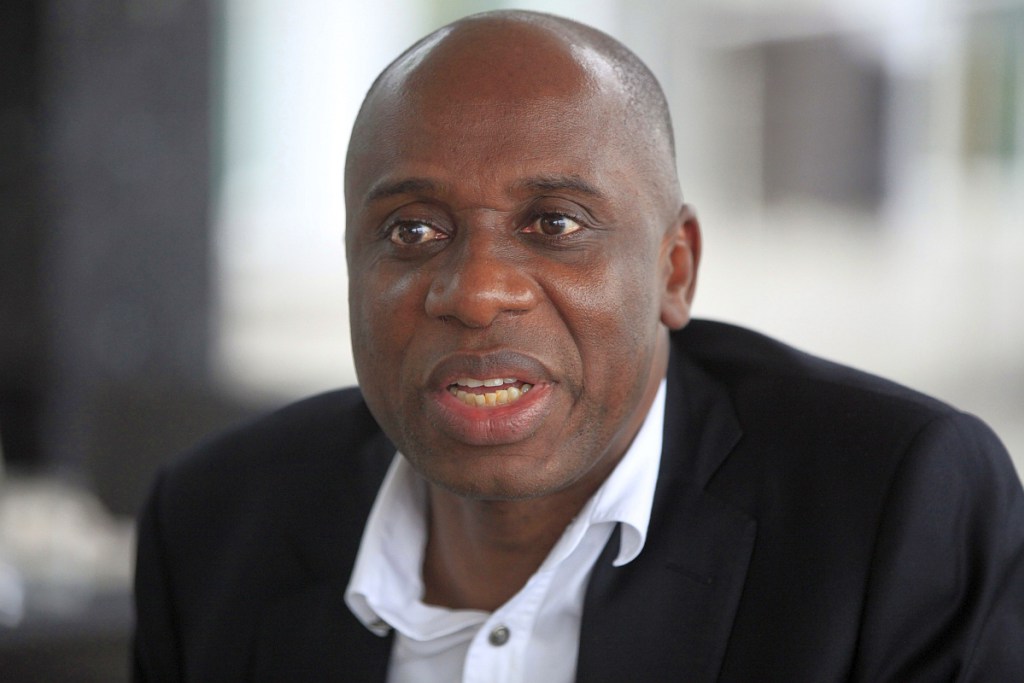
In keeping with Nigeria’s colonial railway heritage, it is not surprising that the Minister of Transportation, Rotimi Amaechi, has invoked a plan to revive rail transportation. The headline announcement is that the Federal Government would spend $16 billion in “modernising rail and ports infrastructure” across the country. The minister’s intention appears justified in the light of Nigeria’s crude railway system, but, on closer scrutiny, it looks like a mere political statement that is not likely to achieve anything tangible.
Essentially, the government plans to link some parts of the country through a rail network and had earlier committed itself to two key projects at a cost of $20 billion. They are the 1,100-kilometre freight and passenger line between Lagos and Kano, and the Lagos-Calabar line. On October 10, the Nigerian Railway Corporation stated that it would complete the first leg of the Lagos-Kano rail spanning Lagos and Ibadan by December 2018, though the laying of tracks has yet to commence. The project is estimated to cost N458 billion.
A deeper look, however, shows that Amaechi’s plan is not based on any sound financials. With the economy asphyxiating from low oil prices, a bogus public recurrent expenditure, mounting debts and frail buffers, the Muhammadu Buhari administration might not be able to stump up the requisite funds for the rail modernisation. Amaechi himself admitted this, saying: “There are approvals for our sector but we have to look for the money because the money is not just there.” How true!
Yes, a modern railway system is a sine qua non for a buoyant economy. Because of this unassailable economic reality, the government ought to have a clear focus in the rail sector. What is needed is a holistic reform of the sector. India, for instance, has just launched an ambitious High Speed Rail programme at a cost of $142 billion over a five-year period. Delhi plans to double this in the next five-year cycle. It has sourced funds from the Japan International Cooperation Agency, the World Bank and private investors from the United States, and has privatised several aspects of its rail sector, the world’s fifth largest. This is the way to go.
Therefore, Amaechi’s approach is faulty. The minister and President Muhammadu Buhari should stop giving the impression that the Nigerian government has the ability to generate the funds needed to execute the project. Amaechi’s mistake was made by his predecessors, with a N50 billion programme and another $8.3 billion plan; the one delivering little and the latter aborted. Even the United Kingdom with a modern rail system is still opening up the rail market to attract private capital. A poll by Eurobarometer, a European Commission agency, found that following the privatisation of British Rail in the 1990s, service satisfaction of the United Kingdom rail users climbed to the second highest in Europe (behind Finland) at 78 per cent. A study by the British rail regulators adds that since privatisation, rail journeys increased by 117 per cent in 2014 and the number of passengers more than doubled. “On the balance, rail privatisation has been a huge success,” The Guardian of London said in 2013.
Yet, the British government is not satisfied. Realising that Network Rail, the public rail company, is lagging behind, the British Ministry of Transport intends to fully privatise a new high-speed line between Oxford and Cambridge. “What we are doing is taking this line out of Network Rail’s control,” Chris Grayling, the British transport minister, said. “Network Rail has got a huge number of projects to deliver at the moment … I want it to happen quicker. This is an essential corridor for this country. On that route, we are going to bring in private finance, in a form to be decided.”
Nigeria’s rail system needs huge private capital investment. This should be the crux of the rail modernisation plan: attracting foreign direct investment. By opening up the rail sector, the Buhari government can achieve a lot. The statist approach being employed inhibits radical modernisation. Closer home, a new 752km HSR line between Ethiopia and Djibouti is having a significant impact on the economies of both countries. The authorities said the railway could reach a speed of 120km/h (cargo trains) and 160km/h (passenger trains), cutting journey times between the two destinations from three days by road to 12 hours.
Unfortunately, this is not the case in Nigeria. The fastest passenger train between Abuja and Kaduna moves at 90km/h although the NRC, after taking delivery of two new Chinese-built coaches in July, announced that it would increase the speed to 130km/h. The other trains are much slower, including the Lagos-Kano train that takes three days or more. In all, Nigeria’s rail network stands at 3,505km, with much of it in narrow gauge, in what has become a stone-age technology, going by global developments. This is a depressing situation, considering the huge potential of railway to boost transportation, tourism, employment and reduce the carnage and gridlock on our dilapidated roads.
To achieve the modernisation target, the Federal Government should entrench innovative ideas by opening up the sector: global rail companies are willing to partner governments to revamp the rail network. First, the executive should work with the National Assembly to repeal the Railway Act (1955), the law that vests sole ownership of railway in the Federal Government. That law is an encumbrance that must go. In its place, a fresh one that will liberalise and accommodate private sector participation should be enacted expeditiously.
END

Be the first to comment